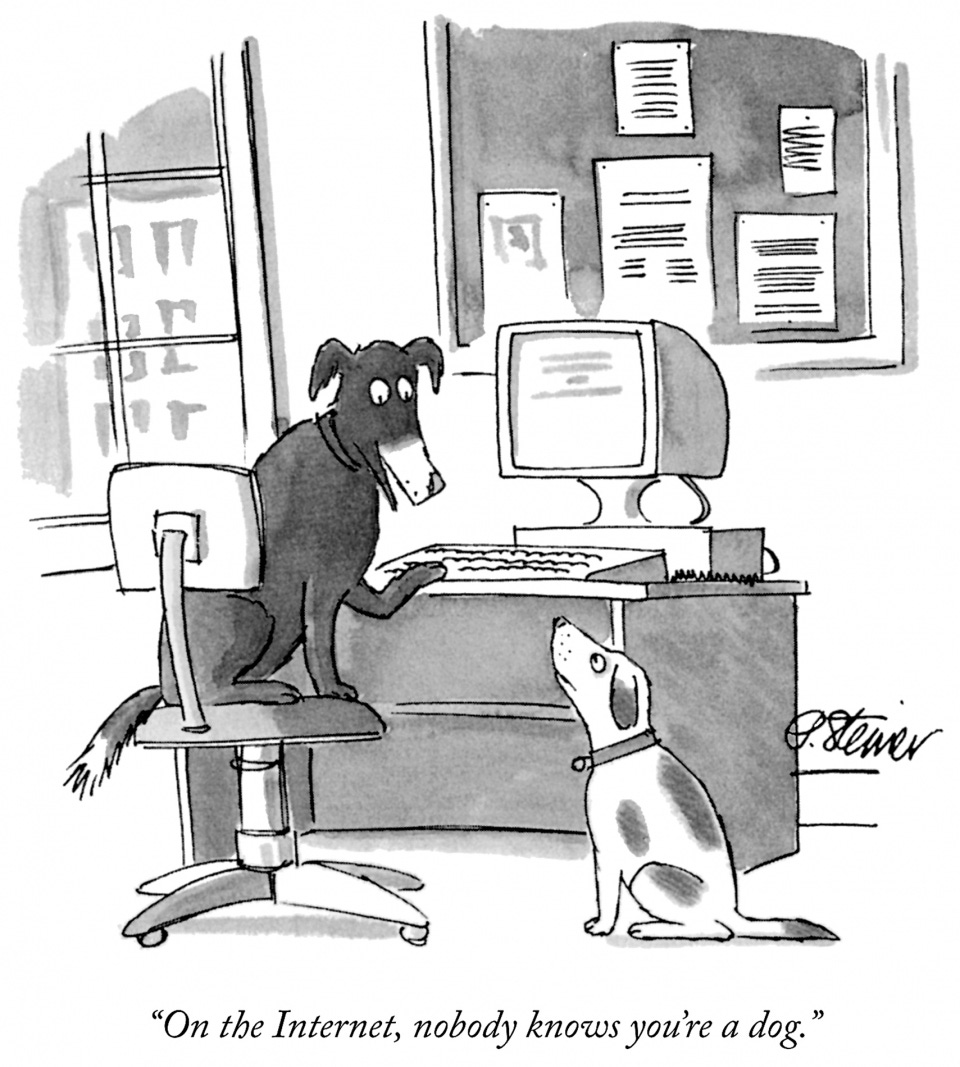On the internet, nobody's knows you're a god.
Remote work makes it easier for new types of employees to join the talent pool.

I started my online writing career as a fictional character. It was 1999, and I was a soldier. My service routine required me to live a double life: two or three weeks under extreme conditions in Lebanon, followed by a week or two of sunbathing and clubbing at home in Israel. While at home, I would post articles about music and nightlife and my general adventures on various online forums. I did not want to use my real name, so I posted under the nickname "James."
But there was a problem. People were reading and sharing my stuff, and before long, I started getting freebies to various parties and events. "I'll put your name on the list." The name being James. And so, I found myself starting to use that name in the offline world, first, with people I originally met online. And gradually, with almost anyone else within that scene.
Within the little pond of Tel Aviv's nightlife scene, James became a thing. I would promote events, write opinion pieces in print and online publications, and have a business and personal dealing with people who didn't know me by any other name.
I was struck by how easy it was to create a new persona online and translate it into an offline business. I never intended for this to happen and never tried to hide my real name. But the name and visual style (photos, dress) associated with "James" took a life of their own. As a result, my life became even more split: The people I met at parties could never imagine that I spend most of my time in the army. And the people in my unit would not have believed the type of fun I was having in my spare time.
Once I finished my military service, I went on a long trip and have been on it ever since. James was no longer needed and was never seen again.
The New Yorker cartoonist Peter Steiner famously wrote that "on the Internet, nobody knows you're a dog," alluding to the promise and threat of virtual communication. What I find interesting is the possibility of being not a dog but a god — a creator of whole new people.
James was an extension of my actual self. But I (the real me) was not really necessary in that process. James could have been created by a group of people or even by an algorithm that puts together photos and text based on what is likely to appeal to a specific group of people.
That's where we're headed. Imma is a Japanese model that works with brands such as IKEA and Salvatore Ferragamo. You can see her photo at the top of this email. Imma has hundreds of thousands of followers on Instagram and TikTok and even collaborated with several other models and entertainers. It looks like she has everything going for her. The only problem is that she doesn't really exist.
Imma was created by Tokyo-based Aww Inc., a "virtual human agency." Aww works with Nike, Dior, KFC, Porsche, and Adidas to create online personas that appeal to different consumers. Some of these personas — Imma and her colleagues — have appeared in Vogue and Harpers Bazaar.
As more of our work is performed online (even while at the office), it is increasingly possible for virtual humans to join the workforce. AI is increasingly good at generating human faces and human ideas, and human speech. A team of talented people can create the ideal lawyer, investment advisor, customer support agent — making him/her/it more attractive to customers. That same team can actually generate multiple personas and fit each one to a specific group of customers that is most likely to appreciate it.
Last week, I mentioned that remote work would usher a global competition in professions that were previously protected from globalization. This global competition will enable the most creative and productive people to capture a higher share of the rewards (while eliminating many mediocre jobs). This competition will not be restricted to actual humans. In multiple industries, groups of talented people will work together to create virtual humans and share the revenue they generate.
The basic business unit will not be the corporation or the brand. It will be the persona. Real or imagined.
Have a great weekend.

Dror Poleg Newsletter
Join the newsletter to receive the latest updates in your inbox.

